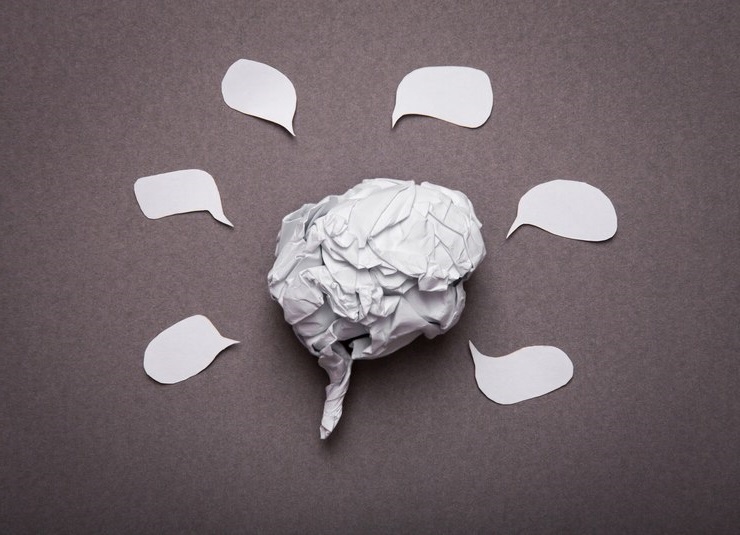
The brain is a remarkable organ that plays a crucial role in our daily lives. It is responsible for our thoughts, emotions, memories, and overall cognitive function. Just like any other part of our body, the brain requires proper care and nourishment to function at its best. In this article, we will explore various tips and strategies to boost brainpower and enhance cognitive abilities. By incorporating these practices into your daily routine, you can optimize your brain health and unlock your full cognitive potential.
Engage in regular physical exercise
Physical exercise is not only beneficial for our physical health but also for our brain. Engaging in regular exercise has been shown to improve cognitive function, memory, and attention span. When we exercise, our heart rate increases, leading to increased blood flow to the brain. This increased blood flow delivers oxygen and nutrients to the brain, promoting its overall health and function.
Exercise also stimulates the release of chemicals in the brain, such as endorphins, which are known to improve mood and reduce stress. Additionally, exercise promotes the growth of new neurons in the brain, a process known as neurogenesis. This can enhance learning and memory abilities.
Get enough sleep
Sleep is essential for brain health and cognitive function. During sleep, the brain consolidates memories, processes information, and repairs itself. Lack of sleep can impair cognitive function, attention, and memory. It is recommended to aim for 7-9 hours of quality sleep each night.
To improve sleep quality, establish a regular sleep schedule, create a relaxing bedtime routine, and create a sleep-friendly environment. Avoid caffeine and electronic devices before bed, as they can interfere with sleep. If you have trouble sleeping, consider practicing relaxation techniques, such as deep breathing or meditation, to promote relaxation and better sleep.
Eat a healthy and balanced diet
The food we eat has a direct impact on our brain health and function. A healthy and balanced diet provides the necessary nutrients for optimal brain function. Include a variety of fruits, vegetables, whole grains, lean proteins, and healthy fats in your diet.
Omega-3 fatty acids, found in fatty fish, walnuts, and flaxseeds, are particularly beneficial for brain health. They have been shown to improve cognitive function and reduce the risk of cognitive decline. Antioxidant-rich foods, such as berries, dark chocolate, and green leafy vegetables, can also protect the brain from oxidative stress and inflammation.
Avoid processed foods, sugary snacks, and excessive alcohol consumption, as they can have a negative impact on brain health. Stay hydrated by drinking plenty of water throughout the day, as dehydration can impair cognitive function.
Stay hydrated
Proper hydration is essential for optimal brain function. The brain is made up of about 75% water, and even mild dehydration can impair cognitive abilities, such as memory and attention. Aim to drink at least 8 cups of water per day, and more if you are physically active or in a hot environment.
In addition to water, you can also hydrate with herbal teas, fruits, and vegetables that have high water content. Avoid excessive consumption of sugary drinks and caffeinated beverages, as they can have a diuretic effect and lead to dehydration.
Practice mindfulness and meditation
Mindfulness and meditation practices have been shown to have numerous benefits for brain health and cognitive function. These practices involve focusing your attention on the present moment and cultivating a non-judgmental awareness of your thoughts and emotions.
Research has shown that regular mindfulness and meditation practice can improve attention, memory, and cognitive flexibility. It can also reduce stress, anxiety, and depression, which can have a negative impact on brain function.
To incorporate mindfulness and meditation into your daily routine, set aside a few minutes each day to sit quietly and focus on your breath or a specific object. There are also many guided meditation apps and online resources available to help you get started.
Challenge your brain with puzzles and brain games
Just like any other muscle, the brain needs regular exercise to stay sharp and agile. Engaging in activities that challenge your brain can help improve cognitive function and enhance brainpower.
Puzzles, such as crosswords, Sudoku, and jigsaw puzzles, can improve problem-solving skills, memory, and attention. Brain games and apps specifically designed to train the brain can also be beneficial. These games often involve tasks that require memory, attention, and cognitive flexibility.
Make it a habit to incorporate brain-challenging activities into your daily routine. This can be as simple as doing a crossword puzzle during your morning coffee break or playing a brain game on your phone during your commute.
Learn something new every day
Continuously learning and acquiring new knowledge is an excellent way to boost brainpower. Learning stimulates the brain, promotes the growth of new neural connections, and enhances cognitive abilities.
Make it a habit to learn something new every day, whether it’s reading a book, taking an online course, or learning a new skill. This can help improve memory, attention, and problem-solving skills. It also keeps the brain active and engaged, preventing cognitive decline.
Choose topics or skills that interest you and challenge you intellectually. This will make the learning process more enjoyable and rewarding.
Read books and engage in intellectual discussions
Reading books is not only a great way to expand your knowledge but also a fantastic exercise for the brain. Reading stimulates the brain’s neural pathways, improves vocabulary, and enhances cognitive abilities.
Choose books that challenge you intellectually and cover a wide range of topics. This will expose your brain to different ideas and perspectives, promoting cognitive flexibility and critical thinking.
In addition to reading, engaging in intellectual discussions with others can also stimulate the brain. Discussing complex topics and exchanging ideas can enhance cognitive abilities and broaden your understanding of the world.
Stay mentally active by engaging in hobbies and activities that stimulate your brain
Engaging in hobbies and activities that stimulate your brain is an excellent way to boost brainpower. These activities keep the brain active and engaged, promoting the growth of new neural connections and enhancing cognitive function.
Choose activities that challenge you mentally, such as playing a musical instrument, learning a new language, or solving complex puzzles. Engaging in creative activities, such as painting or writing, can also stimulate the brain and enhance cognitive abilities.
Make time for these activities in your daily or weekly routine. Set aside dedicated time to engage in hobbies that you enjoy and that stimulate your brain.
Manage stress effectively
Chronic stress can have a detrimental effect on brain health and cognitive function. It can impair memory, attention, and decision-making abilities. Therefore, it is essential to manage stress effectively to protect and enhance brainpower.
There are various stress management techniques that you can incorporate into your daily routine. These include deep breathing exercises, progressive muscle relaxation, yoga, and mindfulness meditation. Find what works best for you and make it a regular practice.
Additionally, engaging in activities that you find enjoyable and relaxing, such as listening to music, spending time in nature, or practicing a hobby, can also help reduce stress and promote brain health.
Practice deep breathing exercises
Deep breathing exercises are a simple yet powerful technique to reduce stress, promote relaxation, and enhance brain function. Deep breathing activates the body’s relaxation response, which helps reduce stress hormones and promotes a sense of calm.
To practice deep breathing, find a quiet and comfortable place to sit or lie down. Take a slow, deep breath in through your nose, allowing your belly to expand. Hold your breath for a few seconds, then exhale slowly through your mouth. Repeat this process several times, focusing on your breath and allowing your body to relax.
Deep breathing exercises can be done anytime, anywhere, and can be particularly beneficial during times of stress or when you need to focus and clear your mind.
Stay socially connected and engage in meaningful relationships
Human beings are social creatures, and social interaction is essential for brain health and cognitive function. Maintaining strong social connections and engaging in meaningful relationships can have a positive impact on brainpower.
Interacting with others stimulates the brain, promotes the release of feel-good hormones, and reduces the risk of cognitive decline. It can also provide emotional support, reduce stress, and enhance overall well-being.
Make an effort to stay socially connected with friends, family, and your community. Engage in activities that involve social interaction, such as joining clubs, volunteering, or participating in group activities.
Limit screen time and take regular breaks from technology
In today’s digital age, it is easy to spend excessive amounts of time in front of screens. While technology has its benefits, excessive screen time can have a negative impact on brain health and cognitive function.
Research has shown that excessive screen time, particularly in the form of passive activities like watching TV or scrolling through social media, can impair attention, memory, and cognitive abilities. It can also disrupt sleep patterns and contribute to sedentary behavior.
Set limits on your screen time and take regular breaks from technology. Engage in activities that do not involve screens, such as reading a book, going for a walk, or spending time with loved ones. This will give your brain a break and allow it to recharge.
Practice positive thinking and cultivate a growth mindset
Positive thinking and a growth mindset can have a significant impact on brainpower. Research has shown that having a positive outlook and believing in your ability to learn and grow can enhance cognitive function and improve overall well-being.
Practice gratitude and focus on the positive aspects of your life. Challenge negative thoughts and replace them with positive and empowering ones. Cultivate a growth mindset by embracing challenges, seeking opportunities for growth, and believing in your ability to learn and improve.
By adopting a positive mindset, you can enhance your brain’s ability to learn, adapt, and overcome challenges.
Take care of your overall health, including managing chronic conditions
Overall health and well-being are closely linked to brain health and cognitive function. It is essential to take care of your physical health and manage any chronic conditions you may have.
Chronic conditions, such as diabetes, high blood pressure, and heart disease, can have a negative impact on brain health. These conditions can impair blood flow to the brain, increase the risk of cognitive decline, and contribute to the development of neurodegenerative diseases.
Work with your healthcare provider to manage any chronic conditions and follow a treatment plan. Take steps to maintain a healthy weight, control blood pressure and cholesterol levels, and engage in regular physical activity. These lifestyle factors can have a positive impact on brain health.
Engage in activities that promote creativity, such as painting or playing a musical instrument
Creativity is not only a form of self-expression but also a powerful tool for boosting brainpower. Engaging in creative activities, such as painting, playing a musical instrument, or writing, can stimulate the brain and enhance cognitive function.
These activities require the brain to think outside the box, make connections, and problem-solve. They can improve memory, attention, and cognitive flexibility. They also provide a sense of joy and fulfillment, which can have a positive impact on overall well-being.
Make time for creative activities in your daily or weekly routine. Explore different forms of creativity and find what resonates with you.
Stay curious and ask questions
Curiosity is a powerful driver of learning and brain development. Stay curious about the world around you and ask questions. This can stimulate the brain, promote the growth of new neural connections, and enhance cognitive function.
Embrace a sense of wonder and explore different subjects and areas of interest. Read books, watch documentaries, or engage in conversations that expand your knowledge and challenge your thinking. Cultivate a mindset of lifelong learning and intellectual curiosity.
Practice memorization techniques and mnemonic devices
Improving memory is a common goal when it comes to boosting brainpower. There are various techniques and strategies that can help enhance memory and retention.
Practice memorization techniques, such as visualization, association, and repetition. Break information into smaller chunks and create mnemonic devices, such as acronyms or rhymes, to aid in memory recall.
Engage in activities that require memory, such as memorizing poems, learning new vocabulary words, or playing memory games. These activities can exercise the brain’s memory function and improve cognitive abilities.
Stay organized and manage your time effectively
Staying organized and managing your time effectively can help reduce stress, improve productivity, and enhance brain function. When you are organized, you can focus better, make better decisions, and avoid cognitive overload.
Create a system for organizing your tasks, appointments, and priorities. Use tools such as calendars, to-do lists, and reminders to stay on top of your responsibilities. Break tasks into smaller, manageable steps to avoid feeling overwhelmed.
Manage your time effectively by prioritizing tasks, setting realistic deadlines, and avoiding procrastination. This will help you stay focused and make the most of your cognitive abilities.
Seek new experiences and step out of your comfort zone
Stepping out of your comfort zone and seeking new experiences can have a profound impact on brainpower. New experiences stimulate the brain, promote the growth of new neural connections, and enhance cognitive function.
Try new activities, explore different places, and meet new people. Engage in activities that challenge you and push you outside of your comfort zone. This can help improve cognitive flexibility, problem-solving skills, and overall brain health.
Embrace the unknown and be open to new opportunities. The more you expose your brain to new experiences, the more it will grow and adapt.
Stay mentally stimulated by exploring different subjects and areas of interest
Staying mentally stimulated is crucial for brain health and cognitive function. Explore different subjects and areas of interest to keep your brain engaged and active.
Read books, watch documentaries, or take courses on a wide range of topics. Engage in intellectual conversations and seek out different perspectives. This will stimulate your brain, promote the growth of new neural connections, and enhance cognitive abilities.
Challenge yourself to learn about subjects that are outside of your comfort zone. This will keep your brain agile and adaptable.
Practice active listening and engage in meaningful conversations
Active listening and engaging in meaningful conversations can have a positive impact on brainpower. When we actively listen and engage in conversations, our brain is stimulated, and our cognitive abilities are enhanced.
Practice active listening by giving your full attention to the person speaking, maintaining eye contact, and asking clarifying questions. Engage in meaningful conversations that challenge your thinking and expand your knowledge.
Avoid distractions, such as multitasking or thinking about what you will say next, and truly focus on the conversation at hand. This will promote better understanding, memory retention, and cognitive function.
Stay mentally and emotionally resilient by practicing self-care and self-compassion
Mental and emotional resilience are essential for brain health and cognitive function. Practicing self-care and self-compassion can help reduce stress, improve overall well-being, and enhance brainpower.
Take time for self-care activities that promote relaxation and stress reduction, such as taking a bath, practicing yoga, or spending time in nature. Practice self-compassion by being kind to yourself, accepting your imperfections, and treating yourself with the same kindness and understanding you would offer to a loved one.
Engage in activities that bring you joy and fulfillment. Surround yourself with positive and supportive people. These practices will help build mental and emotional resilience, allowing you to navigate challenges and enhance brain function.





